Coming this spring: Cal Day, politics, innovation and BAMPFA’s new digs
American politics, innovative thinkers, artistic luminaries and our annual open house are just a few of the events happening at Berkeley this spring. Serial podcast creator Sarah Koenig talks binge-worthy journalism, the Alvin Ailey American Dance Theater returns to campus, poets and writers discuss their work and Chancellor Dirks talks with top innovators.

January 26, 2016
From race and politics to art and design, events at Berkeley address the ideas and issues on our collective mind.
Everyone’s welcome to get a taste of life at Berkeley on Cal Day. On Saturday, April 16, the campus will open its doors and host more than 300 events, performances, lectures and demonstrations. From earthquake science to etymology, there’s something for everyone at our annual open house (9 a.m.-4 p.m., campuswide).
Quick links
Innovative thinking
Global affairs
U.S. politics
Race and identity
Health
Science
Poets and writers
Art theory and artist talks
Visual expression
Dance
Music
Theater
BAMPFA opens to the public in its new home on Sunday, Jan. 31, with a full-day celebration. The new building, designed by Diller Scofidio + Renfro, is located at the corner of Center and Oxford streets, a short walk from the downtown Berkeley BART. The new BAMPFA boasts over 25,000 square feet of exhibit space, two film screening theaters, viewing booths and archival materials for immersive study. Celebrate with musical performances, hands-on art-making and more (Sunday, Jan. 31, 11 a.m. – 11 p.m.). Museum director Lawrence Rinder will discuss the design of the new building and the opening exhibit in a two-part lecture series (Saturday, March 5, 1:30 p.m., BAMPFA).
Innovative thinking

Eric Schmidt, Wednesday, Feb. 10
Chancellor Nicholas Dirks continues his conversations with international thought leaders, scholars, creators and innovators in the second season of Berkeley Talks. Dirks will sit down with Eric Schmidt, executive chairman of Alphabet Inc. and former CEO of Google, to discuss what it takes to make it to the top of the tech world (Wednesday, Feb. 10, 8 p.m., Zellerbach Hall). Reid Hoffman will join the chancellor to discuss how he conceived and built LinkedIn, the world’s largest professional network (Sunday, March 20, 3 p.m., Wheeler Auditorium). On Cal Day, composer, philosopher and virtual reality pioneer Jaron Lanier, will talk with the chancellor about breakthrough technologies and our digital future (Saturday, April 16, 3 p.m., Wheeler Auditorium).
Dirks and Claude Steele, Berkeley’s executive vice chancellor and provost, will convene a symposium on undergraduate education in the public university. All are welcome to explore the distinctive advantages and challenges of offering an undergraduate education at the highest level of excellence at a public research university (Thursday March 10, 4-8:30 p.m., David Brower Center).

Brewster Kahle, Thursday, Mar. 3
Brewster Kahle of the Internet Archive and University Librarian Jeffrey MacKie-Mason will discuss the future of the modern library. Who is responsible for protecting our cultural memory? Who should pay to maintain our records? (Thursday, March 3, 4:30 p.m., 101 Morrison Library).
Innovation in design will be up for discussion at the Jacobs Institute. Carla Diana will speak about robotics in our everyday lives and what that means from a product designer’s perspective (Friday, Jan. 29, noon, 310 Jacobs Hall). Yoon Lee, vice president of Samsung Electronics, will give insights on designing with context (Friday, March 11, noon, 310 Jacobs Hall).
Berkeley’s annual social innovation competition, Big Ideas@Berkeley, celebrates its 10th anniversary this spring. The contest provides funding, support and encouragement to student teams with big ideas. Celebrate the anniversary at this year’s Big Ideas awards ceremony (Wednesday, May 4, Blum Hall).
Global affairs
As turmoil continues in the Middle East, weekly discussions of the most recent events will be held by the Center for Middle Eastern Studies (Fridays, Jan. 29 – April 29, 3 p.m., 340 Stephens Hall). A two-day conference will examine the destruction of antiquities at the hands of the Islamic State, and what can be done to protect cultural heritage (Friday-Saturday, March 11-12, Bade Museum of Biblical Archaeology). Requiem for Syrian Refugees offers an in-depth look at the current refugee crisis. The screening will be followed by a panel discussion (Thursday, Jan. 28, 6 p.m., 125 Li Ka Shing Center).
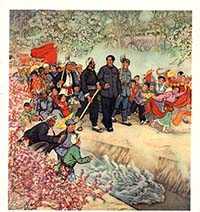
Water crisis in China, Tuesday, Mar. 1
Recent rapid economic development in Asia has had profound environmental consequences. Water scarcity, historical experience and economic and social change in North China will be examined by David Pietz of the University of Arizona (Tuesday, March 1, 4 p.m., 180 Doe Library). Similarly, rapid development in Mongolia has shown the ecological vulnerability of the steppes of Central Asia. A symposium will examine the environmental crisis as mining practices have led to deadly pollution of the air and countryside (Friday, March 11, 9 a.m. – 6 p.m., 180 Doe Library).
U.S. politics
Professor Ahmed Ghappour, director of the liberty, security and technology clinic at UC Hastings College of Law, will discuss the interplay between emerging technologies and national security. As the surveillance state evolves, information security and cyberspace have become a theater of war (Thursday, Feb. 11, 5 p.m., 340 Moffitt Library).
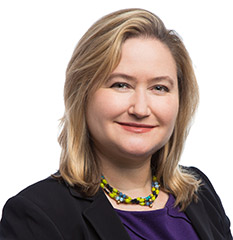
Rebecca MacKinnon, Wednesday, Feb. 17
Will Facebook play a decisive role in the 2016 election? Should Twitter be blamed for the rise of the Islamic State? The evolving power relationships across digital networks pose challenges to how we think about governance, accountability, security and human rights. Rebecca MacKinnon, a leading advocate for Internet users’ rights, will discuss this cultural shift (Wednesday, Feb. 17, 4 p.m., 202 South Hall). Hear an inside perspective from two former members of President Obama’s White House team, Nicole Wong and Greg Nelson, about how tech policy and presidential priorities intersect (Wednesday, Feb. 24, 4 p.m., 202 South Hall).
The Osher Lifelong Learning Instutite will bring a host of speakers to address issues related to the 2016 election. Charles Henry, Berkeley professor emeritus of African American studies, will discuss neoconservatism in black leadership (Apil. 6). San Francisco State University professor Robert Smith will examine voting rights and voting suppression in 2016 (April 13). Berkeley professor Waldo Martin will discuss protest politics from the Black Panthers to Black Lives Matter (April 20) (all lectures Wednesdays, 12:30 p.m., 2020 Addison St.).
Children’s advocates Geoffrey Canada and Stanley Druckenmiller will discuss how current government policies stack up for younger generations and their economic outlook (Wednesday, March 9, 5:30 p.m., International House).

Malo Hutson, Wednesday, Apr. 13
Berkeley Resident Faculty and author Malo Hutson will discuss the social justice implications of gentrification. His work explores how coalitions of residents, community leaders and unions are trying to resist displacement and create more sustainable solutions (Wednesday, April 13, 4 p.m., Wheeler Auditorium).
Berkeley professor emeritus Richard Norgaard will examine the impact of economism as a guiding philosophy. Is reducing social relations to market logic necessary to maintain the global economy? (Thursday, Apr. 7, Sibley Auditorium, Bechtel Hall).
Race and identity
University of Michigan professor and biographer Sherie Randolph will examine the life of black feminist radical Florynce “Flo” Kennedy. Kennedy left a vibrant legacy as a leader of the Black Power and feminist movements (Thursday, Feb. 11, 4 p.m., Multicultural Community Center, MLK Student Union).
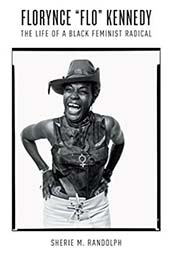
Sherie Randolph, Thursday, Feb. 11
Has Islamaphobia reached a tipping point? That will be the question pondered at the seventh annual International Islamaphobia Conference this spring. Scholars, researchers, activists and artists will come together to reflect (Friday – Saturday, April 22-23, time TBD, Boalt Hall).
A public conference will explore the legacy of Europe’s colonial repatriates, focusing on the aftermath of the independence of formerly European colonies in Asia and Africa. How did repatriates define themselves and their history? This conference will explore this complex identity (Thursday, March 17, 9 a.m. – 5 p.m., 201 Moses Hall).

Tea Time, Wednesday, Feb. 24
Two films explore issues of race and identity. Tea Time tells the story of five Chilean women who have met for tea every month for 60 years, a ritual that has sustained them through massive societal change (Wednesday, Feb. 24, 7 p.m., 160 Kroeber Hall). Turn Left at the End of the World portrays Jewish immigrants from India as they confront a community of Moroccan Jews in late-1960s Israel (Tuesday, March 1, 7 p.m., Magnes Center).
Health
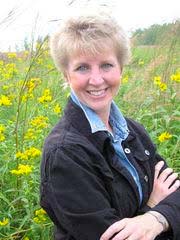
Angela Tagtow, Wednesday, Apr. 13
While many efforts have been made to address food production challenges in our system, less attention has been paid to the challenge of making good food affordable. A panel of experts including Angela Tagtow, executive director of the USDA Center for Nutrition Policy and Promotion, will discuss what stands in the way (Wednesday, April 13, 5:30 p.m., David Brower Center).
Is sugar toxic? UCSF pediatric endocrinologist,Robert Lustig will present his answer to this question as a kickoff to the 2016 Sugar Savvy program (Monday, Feb. 29, 12:15 p.m., Wells Fargo Room, Haas School of Business).
Dr. Camara Jones, president of the American Public Health Association, will discuss three levels of racism and the impact of racism on the health and well-being of our nation (Friday, Feb. 5, 5 p.m., Berkeley City Club).

Dr. Camara Jones, Friday, Feb. 5
Professor Brian D’Onofrio of Indiana University will discuss risk factors for the development of psychopathology, and how genes and environmental influences contribute to antisocial behavior (Wednesday, Mar. 2, 3 p.m., Alumni House).
Health and labor economist Hannes Schwandt will examine inequality in mortality rates. Is it growing? For whom? (Friday, Feb. 12, noon, 2232 Piedmont Ave.)
Science
The life and science of beloved Berkeley professor Marian Diamond will be celebrated with a screening of a soon-to-be-aired PBS documentary about the brain, the passion of scientific discovery, modern neuroscience, women in science and love (Saturday, Feb. 27, 1 p.m., BAMPFA).
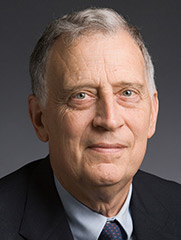
Ralph Cicerone, Tuesday & Wednesday, Feb. 23-24
Ralph Cicerone, president of the National Academy of Sciences, will give two lectures on the state of global climate change. In the first, he will review the most current data on air and water temperatures, ice loss and sea levels (Tuesday, Feb. 23, 4 p.m., Pauley Ballroom). The second will examine why we have effective agreements to protect the ozone layer, but not to stabilize climate (Wednesday, Feb. 24, 4 p.m., Pauley Ballroom).
How do we make decisions? The neuroscience behind that question will be discussed in a workshop led by Berkeley professor Ming Hsu. How do we decide what matters most to us – money, time, social relationships? What do genes have to do with decisions? What happens when neural systems go awry? (Wednesday, Jan. 27, 1:30 p.m., Tang Education Center)
‘Big data’ is big news. To find out what Berkeley students, faculty and researchers are doing with data, come to the spring Data Science Fair. The event will showcase data-intensive initiatives on campus and highlight work from the diverse community of data scientists at Berkeley (Tuesday, May 3, 1-4:30 p.m., 190 Doe Library).
Poets and writers
Chancellor Dirks will engage bestselling author Jonathan Franzen in a conversation about the writing process, his work and sources of inspiration (Friday, April 29, 8 p.m., Zellerbach Hall).

Sarah Koenig, Sunday, Mar. 6. Photo by Elise Bergerson
Sarah Koenig and Julie Snyder, creators of the wildly popular podcast Serial, take the audience behind the scenes of this cultural phenomenon. Koenig and Snyder will delve into what makes binge-worthy journalism (Sunday, March 6, 7 p.m., Zellerbach Hall).
Former U.S. poet laureate Billy Collins teams up with musician Aimee Mann for an evening of poetry, music and conversation. Together they will explore the creative process (Sunday, April 24, 7 p.m., Zellerbach Hall).
Award-winning author and journalist Frances Dinkelspiel will discuss her new book, Tangled Vines. Dinkelspiel, a co-founder of Berkeleyside, examines how power, money, gold and wine all contributed to the making of California then and now (Thursday, Feb. 11, 4 p.m., International House).

Frances Dinkelspiel, Thursday, Feb. 11
Wendy Lower will discuss Hitler’s Furies, a finalist for the National Book Award and the National Jewish Book Award. The book, drawing from wartime documents, postwar trials and private letters and interviews, discusses women who became witnesses, accomplices and perpetrators of the Holocaust (Thursday, Feb. 25, 4 p.m., 201 Moses Hall).
Berkeley Book Chats, a lunchtime series celebrating the artistic and intellectual endeavors of Berkeley faculty members, continues this semester. Renowned historian Thomas Laqueur will discuss his newest book, The Work of the Dead (Wednesday, April 20, noon, 220 Stephens Hall).
Story Hour in the Library offers free monthly prose readings by new and noteworthy authors. Anthony Marra will read and discuss his first novel, A Constellation of Vital Phenomena (Thursday, Feb. 11, 5 p.m., Morrison Library).
Lunch Poems also continues this semester. Hannah Sanghee Park, winner of the Academy of American Poets ‘Walt Whitman Award, will share her work (Thursday, April 7, noon, Morrison Library). Berkeley professor and former U.S. poet laureate Robert Hass will join an evening of Korean poetry (Thursday, Feb. 25, 4 p.m., Berkeley City Club Drawing Room).
Art theory and artist talks
Matias Tarnopolsky, executive and artistic director of Cal Performances, will speak about the Berkeley RADICAL initiative and a new approach to performing arts (Wednesday, Feb. 10, 12:30 pm, 2020 Addison Street). Berkeley’s associate vice chancellor for art and design, Shannon Jackson, will talk about creativity as a public good and its role in higher education (Wednesday, Feb. 17, 12:30 p.m., 2020 Addison St.).

Matias Tarnopolsky, Wednesday, Feb. 10
Sarah Thornton, an ethnographer and sociologist, has been described by the Washington Post as “the Jane Goodall of the art world.” She will give a behind-the-scenes investigation of artists’ lives (Monday, Feb. 1, 7:30 p.m., Banatao Auditorium).
What is the imagination? How does it work? A multidisciplinary and cross-cultural consideration of the theories of imagination will bring together scholars and artists from global universities to ponder these questions (Friday, Feb. 19, 9 a.m., 220 Stephens Hall).
Visual expression
The inaugural exhibit in the new BAMPFA, The Architecture of Life, will include over 250 works and occupy every gallery in the new building. The pieces include scientific illustrations, musical scores drawings, paintings, models and more. The exhibit explores the ways that architecture – as concept, metaphor and practice – relates to different kinds of life experience. Events related to the exhibit will also be taking place at various campus units (Feb. 3 – May 29, BAMPFA). At the UC Botanical Garden, a special tour explores patterns and “architecture” in the plant world. (Thursday, March 10, 1-2:30 p.m.). Local artist Jules Kliot and Erin Algeo, of Berkeley’s Lacis, discuss the architecture of lace on display in the exhibit (Thursday, Feb. 18, 6 p.m.).

Architecture of Life, Feb. 3 – May 29
Airborne celebrates the life and work of former Berkeley professor Robert Hartman. While he started his career as an abstract painter, his later work involved infrared images of manufactured landscapes. The exhibit documents the evolution of his practice and the influence he had on new artists (Feb. 17 – March 11, Tuesdays – Saturdays, noon-5 p.m., 116 Kroeber Hall).
The work of graphic artist and typographer David Lance Goines will be on display at the historic Julia Morgan Hall at the UC Botanical Garden (March. 26 – April 7, 10 a.m. – 4 p.m.). Goines will also discuss his life and work as part of the exhibit (Saturday, March 31, 11 a.m., Julia Morgan Hall).
No Legacy || Literatura electronica highlights the challenges involved in the preservation of electronic literature and media. The exhibit presents a collection of digital works in Spanish, Portuguese, Catalan and English along with experimental print materials (March 11 – Aug. 16, Bernice Layne Brown Gallery, Doe Library).

Mendelssohn to Mendelsson, Jan. 26 – Jun. 24. Painting by Moritz Daniel Oppenheim (1800-1882)
From Mendelssohn to Mendelssohn brings to life the painting by Moritz Oppenheimer, Lavater and Lessig visit Moses Mendelssohn. The exhibit displays German-Jewish ritual art, prints, rare volumes, manuscripts and material culture in a salon-like space for discussion and collaboration (Jan. 26 – June 24, Magnes Center, 2121 Allston Way).
In 2011 a group of Berkeley environmental design students began a gathering for drawing, sharing and discussing what it means to create art. SPACE OPEN is an exhibit of some of the works created from this daily practice of seeing and rendering the world (Jan. 11 – Feb. 12, 121 Wurster Hall).
Dance
Alvin Ailey American Dance Theater returns to Cal Performances this spring. In addition to their classic piece,Revelations, the company will also perform several West Coast premieres. Their residency includes a performance for local K-12 students and a dance class open to the community (Tuesday, March 29 – Sunday, April 3, various times, Zellerbach Hall).

Alvin Ailey American Dance Theater, Tuesday-Sunday, Mar. 29 – Apr. 3. Photo by Christopher Duggan.
Mark Morris Dance Group also makes a return to Cal Performances this semester. The company will perform Morris’ masterpiece, L’Allegro, il Penseroso ed il Moderato, set to the Handel’s oratorio. Dancers will be accompanied by music from the Philharmonia Baroque Orchestra and Chorus (Friday-Saturday, March 11-12, 8 p.m., Sunday, March 13, 3 p.m., Zellerbach Hall).
The Berkeley Dance Project 2016 brings together Berkeley students with local choreographers. The pieces will investigate sensor technology, interactive performance, sculptor Bruce Beasley’s Rondo series (a public art series on campus) and the history of the Black Power movement in the Bay Area (Thursday, April 21 – Saturday April 30, Fridays and Saturday, 8 p.m., Sundays 2 p.m., Zellerbach Playhouse).
Music
The St. Louis Symphony comes to Cal Performances for the first time this semester, with performances of two programs that showcase their range: Mahler’s Symphony No. 5 in C-sharp minor, and John Adams’ Saxophone Concerto featuring virtuoso saxophonist Tim McAllister (Friday, Jan. 29, 8 p.m., Zellerbach Hall).
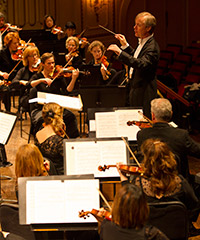
St. Louis Symphony, Friday, Jan. 29. Photo by Dilip Vishwanat.
World-renowned soprano Renée Fleming returns to Cal Performances with Olga Kern on piano. Her concert will run the gamut from grand arias to French love songs to American classics (Saturday, March 5, 8 p.m., Zellerbach Hall).
The Chicago-based, three-time Grammy-winning new-music ensemble eighth blackbird,collaborates with the daring New York composers collective Sleeping Giant in their first performance at Berkeley. The six instrumentalists collaborate with six composers in a performance that defies style boundaries (Sunday, Feb. 14, 7 p.m., Hertz Hall).
The popular noon concert series continues this semester, free and open to the public Wednesdays and Fridays in Hertz Hall. Of note this term: Matthew Hough performs solo piano (Wednesday, Jan. 27), the Danish String Quartet performs along with players from the UC Symphony Orchestra (Friday, Feb. 26) and Ensemble Korea gives a Koto/Kayageum concert (Wednesday, March 30).
The UC Berkeley Chamber Chorus will cover 800 years of English music in one afternoon, featuring works by Byrd, Tallis, Purcell, Elgar, Stanford, Bairstow, Imogen Holst, Tavener and Britten (Sunday, April 3, 3 p.m., Hertz Hall). The UC Berkeley Symphony Orchestra performs Mahler’s Symphony No. 9 under the direction of David Milnes (Friday-Saturday, May 6-7, 8 p.m., Hertz Hall).

Russian Tsar Bell, Friday-Saturday, Apr. 15-16. Photo: UC Berkeley’s Campanile bells by Saxon Donnelly
Does ringing make a bell? The Russian Tsar Bell was the largest bell ever cast at over 200 tons. But the Goliath of bells broke in 1732, before it had ever been struck. Berkeley and Stanford researchers are making the bell ring for the first time on Cal Day, in concert with the Campanile’s carillon (Friday and Saturday, April 15-16, Sather Tower).
Theater
Edgar Oliver tells the tale of Helen & Edgar in a fascinating one-man show. He reflects on his and his sister’s childhood and their mother’s struggle with insanity (Thursday – Sunday, May 5-8, Zellerbach Playhouse).

Edgar Oliver, Thursday-Sunday, May 5-8. Photo by Dixie Sheridan.
A workshop of Berkeley professor Philip Kan Gotanda’s new chamber opera, Both Eyes Open, will be presented this semester. The show explores the impact of the World War II incarceration of Japanese Americans on the internal life of one young man returning home (Friday, Jan. 29, 7:30 p.m., 125 Morrison Hall).
A small Mexican-American community in Los Angeles comes to life in Chavez Ravine, which makes its Bay Area premiere at Berkeley. Satire, music and multimedia come together to tell a story about power, community and displacement (March 4-13, Fridays and Saturdays 8 p.m. Sundays 2 p.m., Zellerbach Playhouse).
For more events at Berkeley this spring, visit the Critic’s Choice Calendar or sign up for weekly event emails.